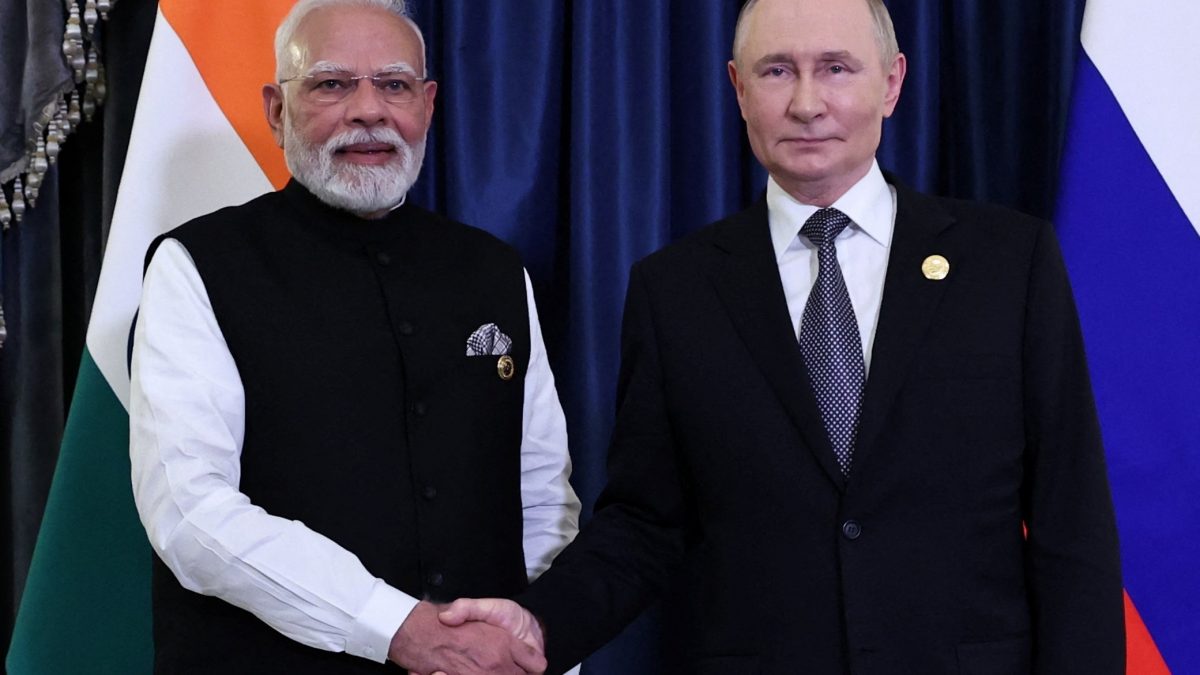A growing number of disillusioned Westerners — particularly from the US, Germany, and France — are applying Russia’s new “shared values” visa programme, which offers expedited residency to those who say they no longer identify with what they see as the “decadence” of Western society.
According to a Financial Times report, the visa, introduced by Moscow last year, echoes Soviet-era rhetoric that positioned Russia as the moral counterweight to the capitalist West.
Russian officials say up to 150 applications are received each month under this programme, many from individuals who promote their ideological migration through YouTube channels and online interviews, garnering tens of thousands of views, added the report.
Among them is Derek Huffman, a welder and father of six from Arizona, who moved to Russia in 2024 with his wife and children.
On their YouTube channel, the Huffmans said they left the US to escape “LGBT indoctrination of kids,” rising crime, and cities “overrun by immigrants.”
“Russia was really our only option,” FT quoted the couple as saying in a video.
But the Huffmans, who arrived before the special visa was launched, faced difficulties, particularly in accessing the Russian state school system.
“The big reason I’m doing it is for the citizenship,” FT quoted him as explaining on YouTube.
He said that signing a one-year contract with the Russian army would speed up his path to citizenship. After sharing his plans online, a viewer even sent him military-grade body armour.
The move sparked widespread criticism. In a July phone call to his family — later posted online by his wife — Huffman defended his decision.
“To all the people that are saying I’m a Christian, yet I joined an army so I could go kill Ukrainians — I don’t relish the idea of taking life,” he said.
“But I’m doing what I feel is right.” He said he was “doing something extraordinary” with his life, rather than living like a “sheep . . . on your computer and phone”. But most of all, “I’m earning our spot and respect in our new country,” he said.
Maria Butina, a Russian MP and former agent deported from the US in 2019, called the Huffmans’ case an outlier.
Tasked with helping “friendly foreigners from unfriendly countries” settle in Russia, she said most applicants — mainly from Germany, France, and the US — don’t take such extreme steps.
Their numbers remain small and are dwarfed by the hundreds of thousands who have fled Russia since the Ukraine invasion, driven by war opposition, fear of conscription, or the country’s growing isolation.
German businessman Jakob Pinneker, now heading a Russian state-funded integration agency in Nizhny Novgorod, said the appeal of “traditional values” is a common thread among new arrivals.
“I came into the game because I’m German and I like Ordnung (order),” he said. He claims over 600 applicants are currently in the pipeline, and about 60 have already settled in the region.
One such family is Canadian couple Arend and Anneesa Feenstra, who moved to rural Russia with eight of their nine children and started a farm. Their YouTube channel now boasts nearly 200,000 subscribers.
Some of these glossy YouTube profiles of Western families relocating to Russia are allegedly funded by state-backed outlets like Russia Today, FT reported, citing investigative reporting by Russian outlet iStories. Though officials deny any deliberate recruitment programme, the visibility of these “success stories” appears carefully curated.
For many migrants, disillusionment with the West is central to their narrative. Stephen Shores, a former American IT worker who converted to Orthodoxy and relocated to Russia, said he felt culturally isolated in the US and now enjoys greater freedom to express conservative views — though he acknowledges that freedom doesn’t extend to criticism of the Kremlin. “I don’t really see much point doing that,” he said.
Despite the ongoing war, drone strikes, and international isolation, these Western expatriates say they feel safer, more aligned ideologically, and freer in Russia — provided they align with the state’s definition of acceptable values.
With inputs from agencies
End of Article

)
)
)